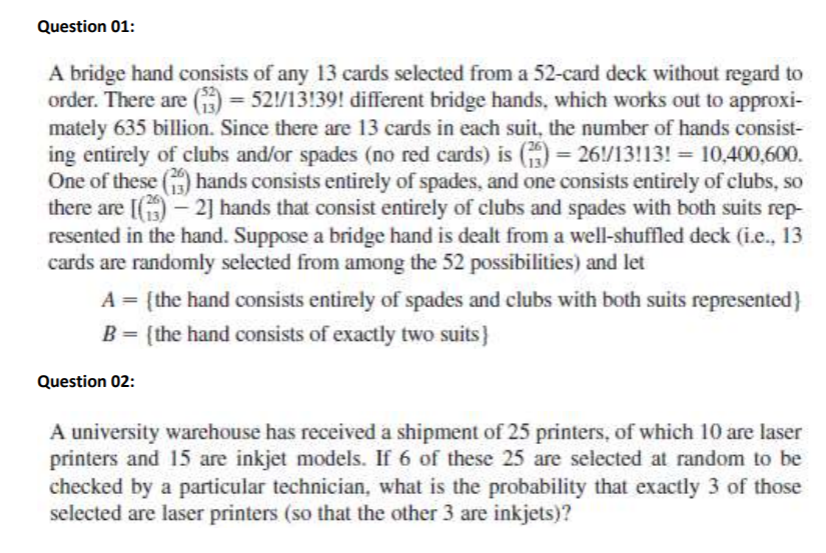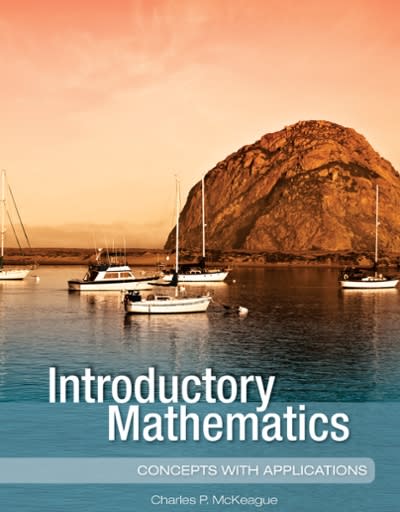Answered step by step
Verified Expert Solution
Question
1 Approved Answer
2 question Question 01: A bridge hand consists of any 13 cards selected from a 52-card deck without regard to order. There are (;) =
2 question

Step by Step Solution
There are 3 Steps involved in it
Step: 1

Get Instant Access to Expert-Tailored Solutions
See step-by-step solutions with expert insights and AI powered tools for academic success
Step: 2

Step: 3

Ace Your Homework with AI
Get the answers you need in no time with our AI-driven, step-by-step assistance
Get Started


